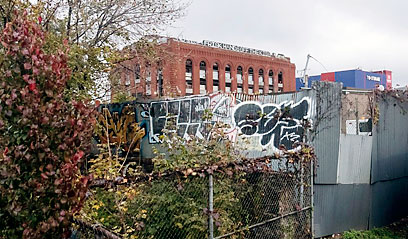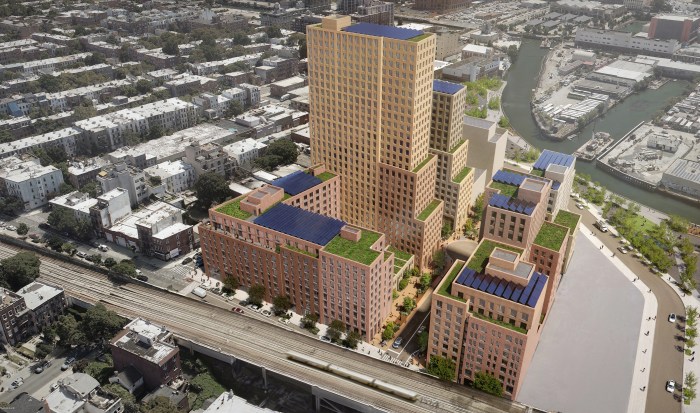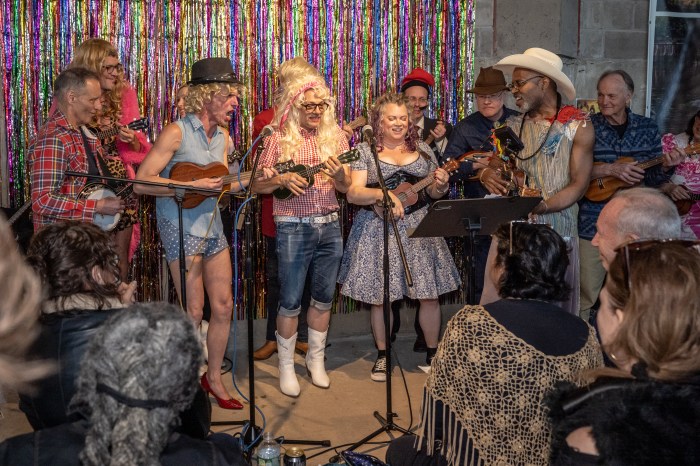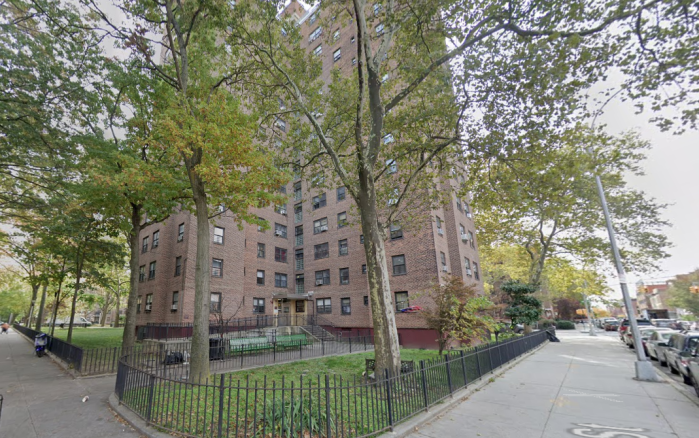It’s a boon for made-in-Brooklyn businesses.
Honchos of the Gowanus-based arts organization transforming a defunct Third Avenue power plant into a manufacturing center will add three additional floors for fabrication facilities to the structure, according to plans filed with the city on Nov. 1.
The proposal, which calls for doubling the three-story building’s size in order to house metal, ceramic, print, and woodworking shops, is a refreshing change in a nabe where developers tend to focus on erecting high-rises — especially as city officials explore rezoning the long-time blue-collar business hub, according to the head of a local commerce group.
“We’re excited that people are recognizing the value in the manufacturing and industrial aspect of Gowanus, and are willing to invest the money,” said Paul Basile, president of the Gowanus Alliance. “The fact that it’s not always about residential gives us some hope that the city will also recognize that.”
Powerhouse Environmental Arts Foundation founder Joshua Rechnitz’s makeover of the so-called “Batcave” — a graffiti-covered building on the banks of the Gowanus Canal that squatters are known to take refuge in — will bring more jobs and awareness to the nabe, said Basile, who referenced how the 2012 debut of cultural center Pioneer Works in Red Hook sparked increased economic activity in that neighborhood.
“What we see from past experience, whether with Pioneer Works in Red Hook or other arts cooperatives, is they not only bring a lot of jobs, but they generate a lot of interest in the surrounding area,” he said. “And hopefully that spills over to the other businesses in the neighborhood.”
And the former home of the Brooklyn Rapid Transit Power Station, a turn-of-the-century coal-burning plant that supplied electricity for local railroad and street-car systems until the 1950s, is already less of an eye-sore now that Powerhouse-contracted workers are tidying it up, Basile said.
Rechnitz, who bought the property between Carroll and Third streets for $7 million in 2012, is doling out $74 million for the renovations, according to city records, which show that construction plans also include spaces for digital fabrication, a photo lab, and a banquet and catering hall.
The new Powerhouse Workshop facility is set to open in 2020.























